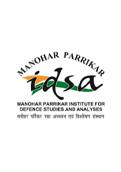Islamist Extremism: Challenge to Security in South Asia
Emergence of radical and extremist Islamist movements has proved to be a major source of instability in South and Central Asia. Radical Islamist groups emphasise that political power is indispensable to the establishment of an Islamic state. Though Muslims like non-Muslims have multiple identities – religious, ethnic, tribal, linguistic or territorial, the emphasis by the Islamists on the Islamic communal identity puts them in collision course with the state and other communities.
- K. Warikoo
- January 2006





